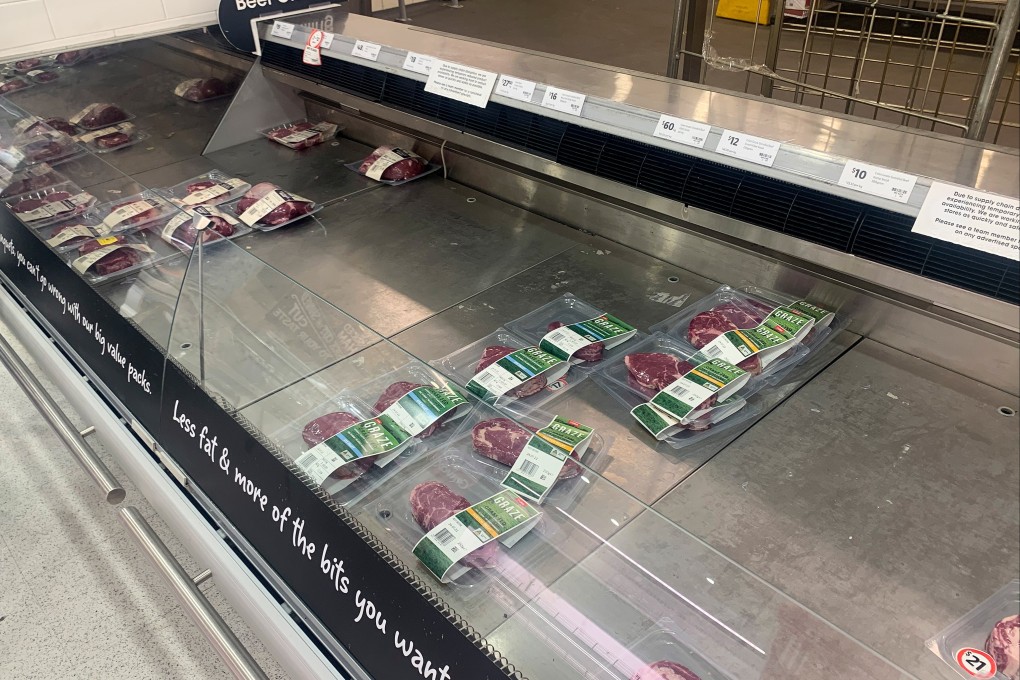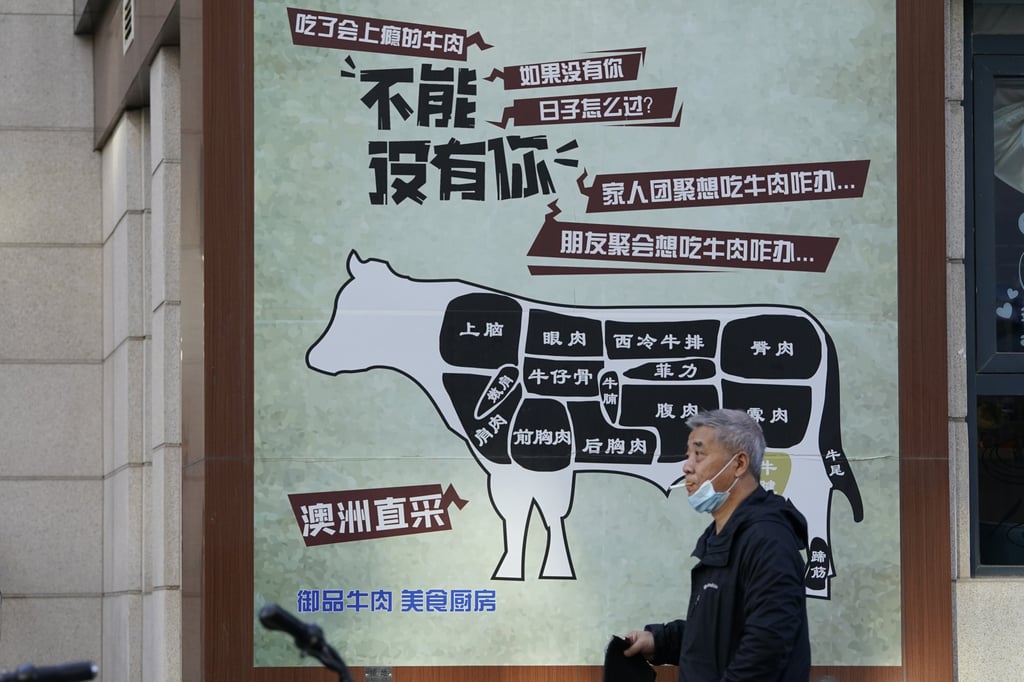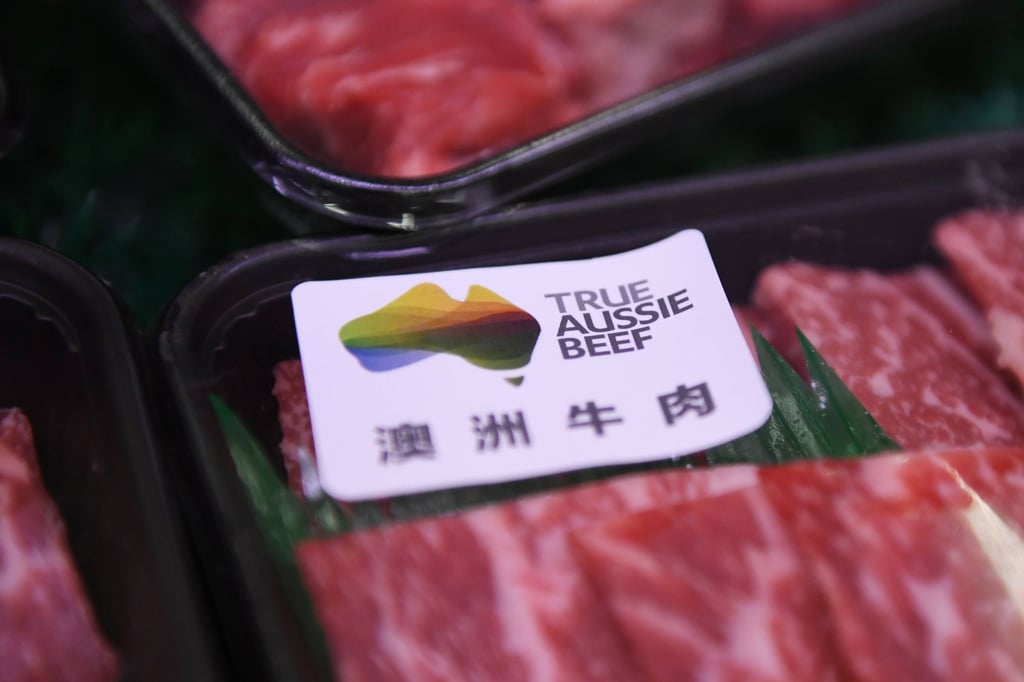China beefs up food security again with yet another ban on Australian meat imports
- Chinese customs have moved to suspend imports from Teys Naracoorte facility in South Australia; the plant recently had a Covid-19 outbreak
- It’s 10th abattoir to stop exports to China since May 2020, after Canberra pushed for probe into coronavirus origins without consulting Beijing

China has suspended imports from yet another Australian meat processing facility, this one hit by a high-profile coronavirus outbreak.
China customs said on Friday it would stop beef coming in from the south Australian plant Teys Naracoorte from January 29, but did not give a reason for the decision.
It is the tenth Australian abattoir to cease meat exports to China since May 2020, with three of the suspensions, including the latest, apparently related to Covid-19.

Customs data showed the authorities in Shanghai prevented about 15,000kg of what was described as defective frozen boneless beef from the Australian firm’s Queensland sister plant, Teys Biloela, entering China in November.
Last month there were 140 Covid-19 infections reported at the Naracoorte plant. It closed its doors two weeks ago then resumed work a few days later, saying no one was forced to work with Covid-19 amid media reports alleging management asked employees who tested positive to carry on unless they felt unwell.

China has previously been concerned Covid-19 was being brought into China via food or packaging from overseas.